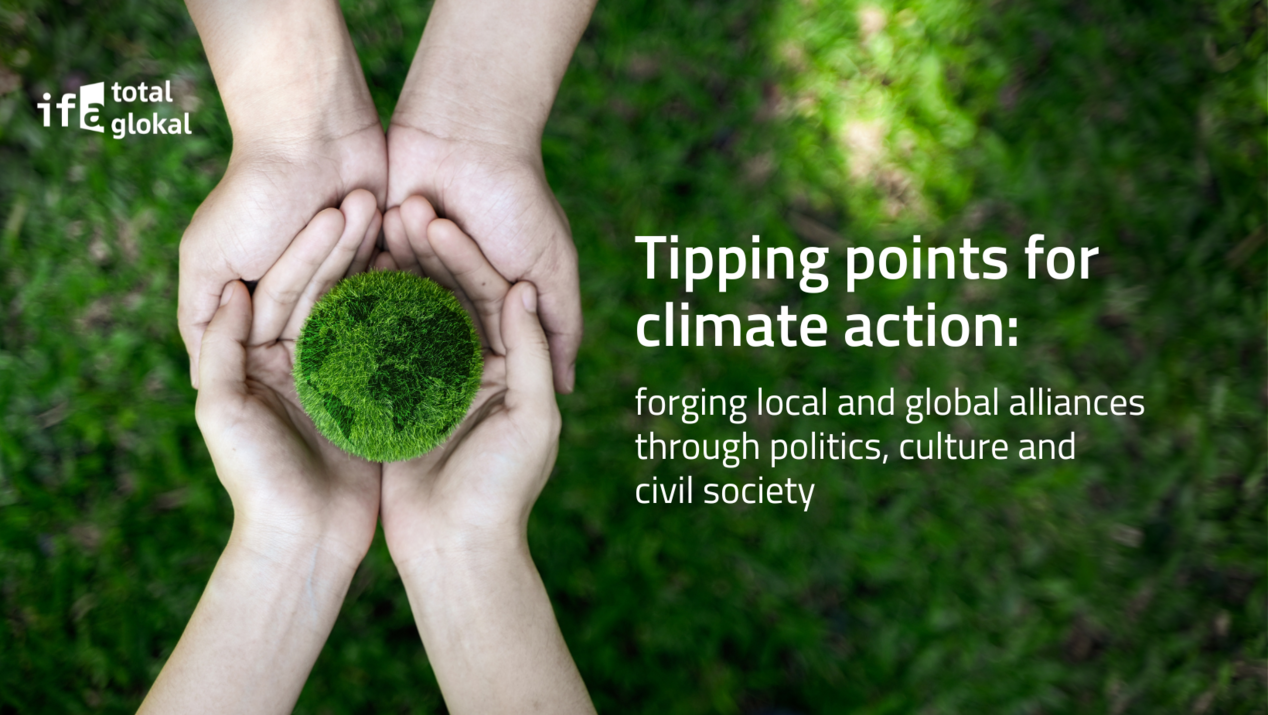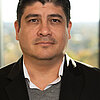
Extreme weather around the world from Pakistan, Italy to the Ahr River Valley: the climate crisis is becoming more visible. But efforts across the world to fight against it are progressing slowly, all too often stuck in arguments over complex policies, money, and responsibilities. These conflicts are further fuelled by widening social cleavages and narratives of fear and loss. On the other hand, climate activist movements such as Fridays 4 Future have successfully mo-bilised millions of people, and small countries like Costa Rica and transnational groups of cities are pushing international climate politics forward by adopting ambitious targets and forging progressive coalitions.
A key ingredient to these successes in creating momentum and bringing people together is powerful messaging. It makes complex information accessible and highlights the risks of doing nothing and gives a frank, solid, and above all positive vision of effective climate action that leaves no one behind. Cultural actors and cultural relations can play an important role in this, by bringing people together and bridging divides, as well as by shaping and amplifying positive narratives that lead to climate action.
The panellists will discuss examples of effective messaging for greater climate ambition and the role of cultural actors. They will explore how it can build social and political momentum and help to overcome divisions in societies and at the international level.
The conference language is English.
The event will be live-streamed
YouTube: https://www.youtube.com/watch?v=wzpL1_Bvnkg
facebook: https://fb.me/e/JdwFZJhr
This event will be recorded and potentially made available to the public in the future. By registering and participating in this event, you provide ifa consent to record your participation in the form of screenshots (photos) and/or video recording. Your registration data will not be forwarded to third parties.

Carlos Alvarado Quesada is Professor of Diplomatic Practice at the Fletcher School of Law and Diplomacy at Tufts University and Richard von Weizsäcker Fellow at the Robert Bosch Academy. He served as President of the Republic of Costa Rica from 2019 to 2022. His presidency focused on combating climate change, human rights, democracy and multilateralism.
He initiated Costa Rica's National Decarbonisation Plan, which aims to decarbonise the country's economy by 2050. In 2022, Alvarado received the Planetary Leadership Award from the National Geographic Society for his commitment and actions to protect the oceans.
Read less
Read more

Santa Meyer-Nandi is an environmental lawyer and a senior fellow at the Think Tank 30 of the Club of Rome Germany. She co-founded FindingSustainia, a Think and Action Lab network of transdisciplinary experts, facilitators and entrepreneurs striving to make transformational impacts. She is board Member of the Stuttgart Innovation Fund and was “Best Sustainability Blogger” in Germany for her blog “FindingSustainia”
Read less
Read more

Barbara Karsch-Chaïeb is the founder of the art space kunst [ ] klima in Stuttgart and works as an art director, curator and visual artist. She is also a lecturer in Art Education and conducts Land Art Workshops. She has received numerous grants in Germany and internationally with residencies in the USA, Switzerland, Czech Re-public, Armenia and Poland among others.
Read less
Read more
In Stuttgart, the discussion series Totally Glocally addresses current questions about the interaction between global and local structures. International experts talk about the interaction between the global and the local. Full recordings of this and other Totally Glocally panel sessions are available on ifa’s YouTube Channel. Find out more on the programme on the ifa website.
Charlottenplatz 17
D-70173 Stuttgart